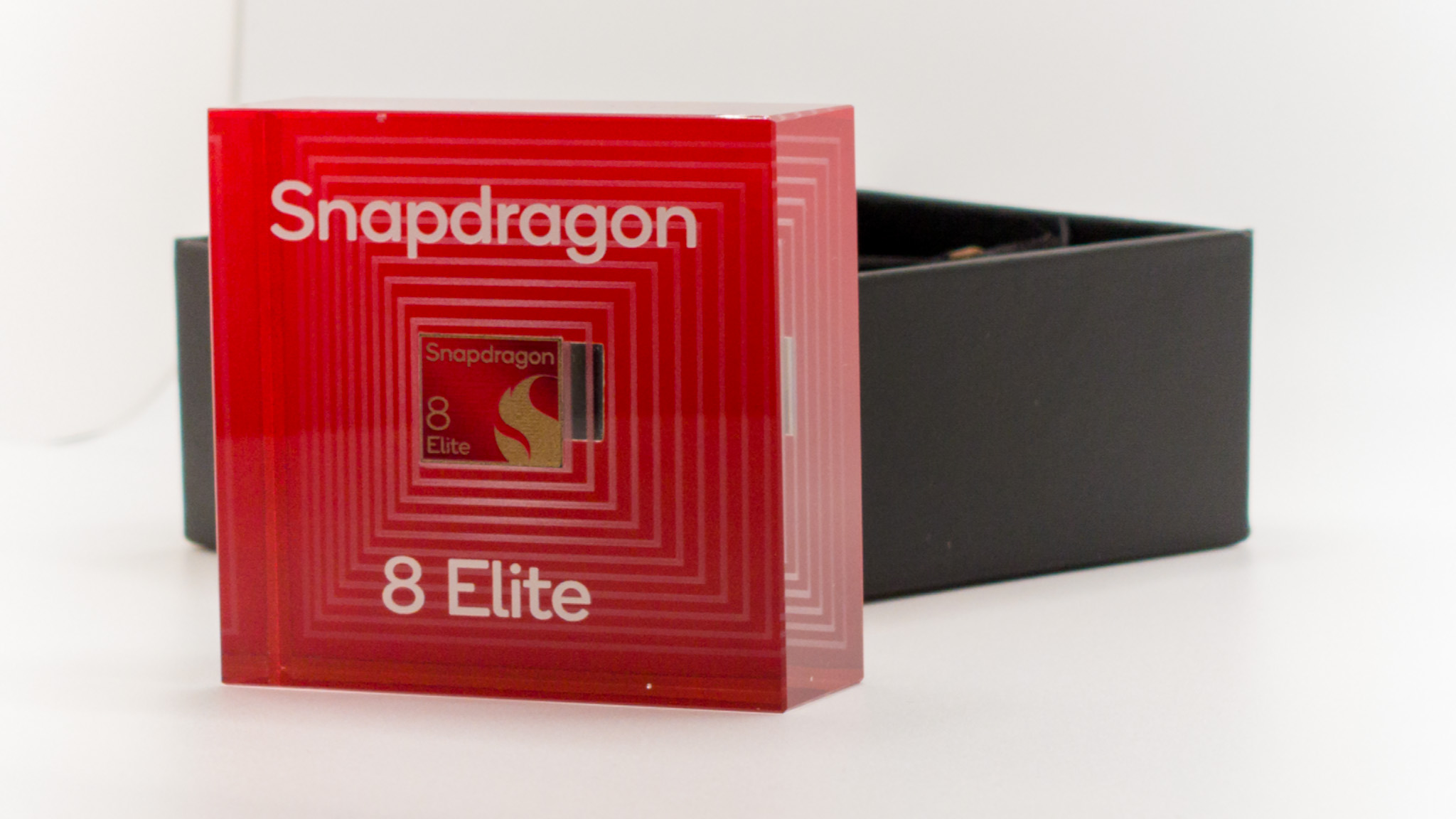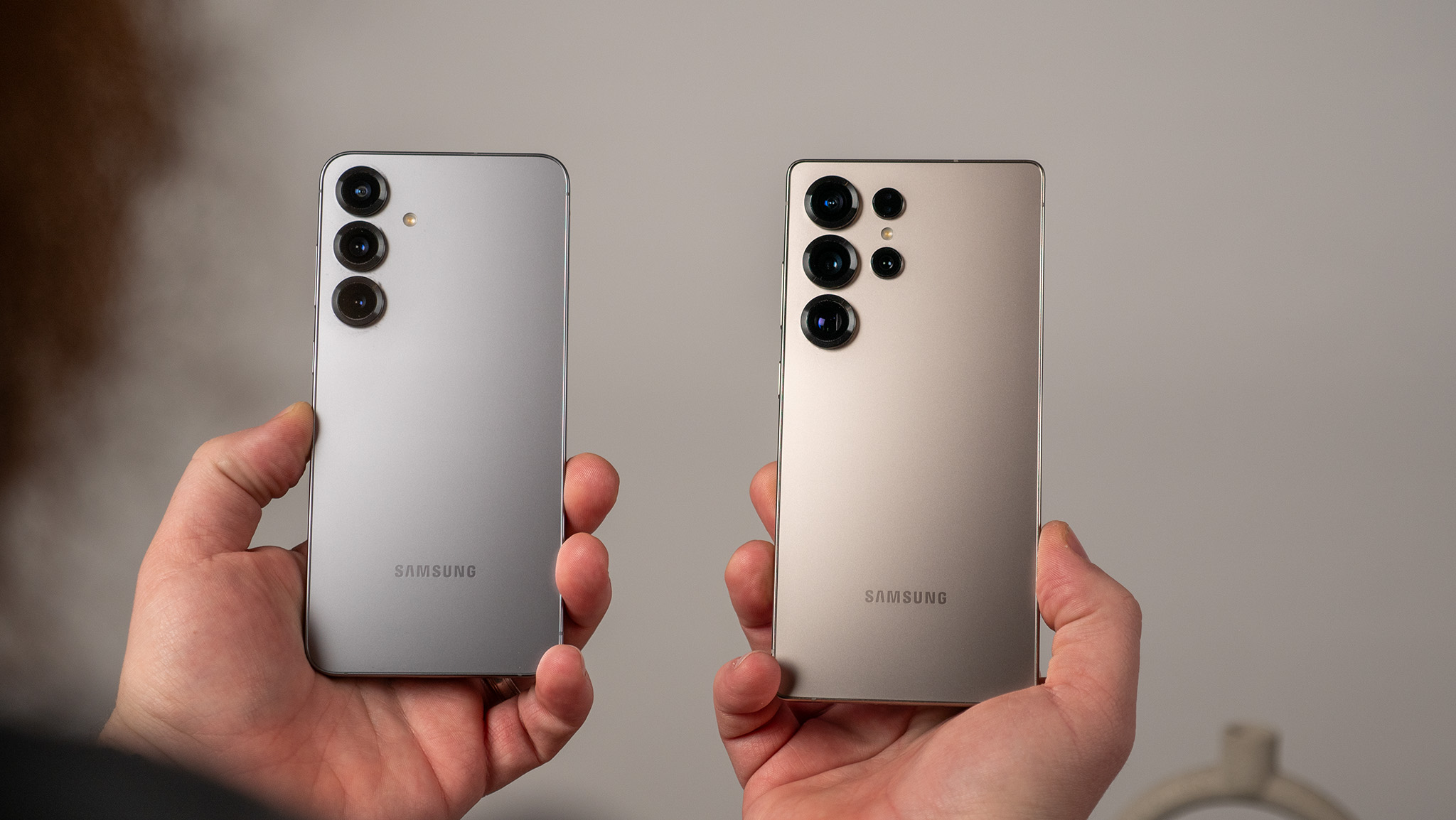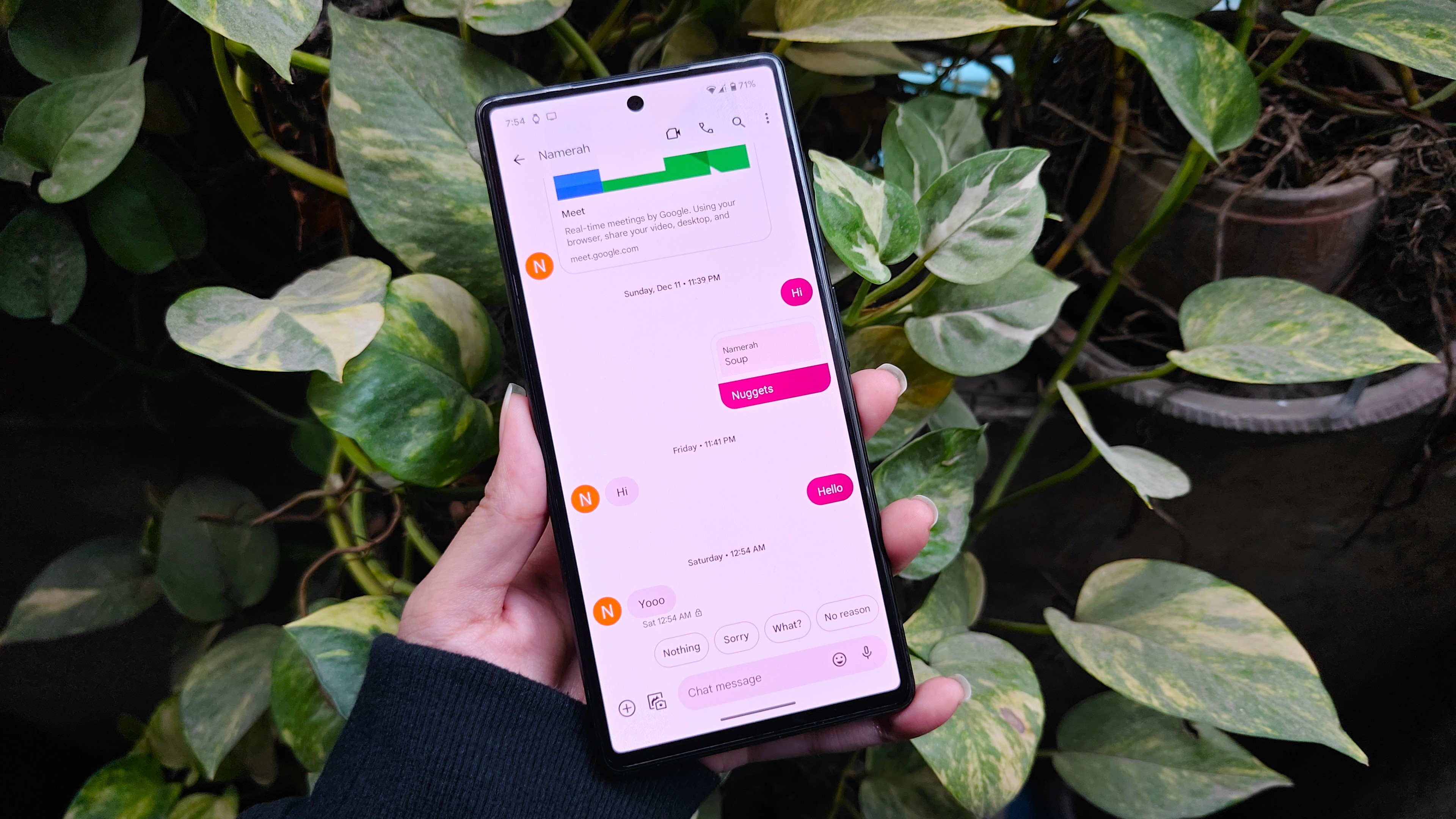Qualcomm Snapdragon 8 Elite for Galaxy vs. regular Snapdragon 8 Elite: Is there a difference?
No, you don't need to pay for a Galaxy S25 to get the best chip.

This year's crop of flagship Android phones represents something of a victory lap for Qualcomm. Half a decade ago, Apple successfully scaled its A-series phone chips up to the laptop and desktop level. Now, Qualcomm is experiencing a similar leap in reverse. It designed laptop and desktop-class Snapdragon X Elite chips and brought their staple custom Oryon cores to the mobile system-on-a-chip (SoC) level with the Snapdragon 8 Elite platform.
As my colleague Harish Jonnalagadda recently confirmed in benchmark testing, the Snapdragon 8 Elite crushes what MediaTek and Google comparatively offer. However, Samsung and Qualcomm threw us a curveball when they co-designed the Snapdragon 8 Elite for Galaxy processor. It's a custom chip based on the Snapdragon 8 Elite platform but tailored to the Samsung Galaxy S25 series of smartphones.
That begs the question: how much better is the Snapdragon 8 Elite for Galaxy chip than the regular version? In their announcement, the two companies touted the custom chip's excellence in image processing, gaming, powering Galaxy AI features, and connectivity. Is that enough to make you think twice about buying a flagship with a standard Snapdragon 8 Elite chip?
To find out, the team at Android Central tested a slew of Snapdragon 8 Elite–powered devices against the Galaxy S25 and Galaxy S25 Ultra. For our Snapdragon 8 Elite lineup, we tested the Honor Magic 7 Pro, iQOO 13, RedMagic 10 Pro, and Asus ROG Phone 9 Pro. We then stacked that up against the benchmark scores of the Galaxy S25 Ultra from Andrew Myrick's review and the Galaxy S25's scores from my review.
To say that the results were surprising would be an understatement. While the Snapdragon 8 Elite for Galaxy chip is plenty powerful, it rarely beats other top Snapdragon 8 Elite phones.
Benchmark | Samsung Galaxy S25 Ultra (Snapdragon 8 Elite for Galaxy) | Samsung Galaxy S25 (Snapdragon 8 Elite for Galaxy) | Honor Magic 7 Pro (Snapdragon 8 Elite) | iQOO 13 (Snapdragon 8 Elite) | RedMagic 10 Pro (Snapdragon 8 Elite) | ASUS ROG Phone 9 Pro (Snapdragon 8 Elite) |
|---|---|---|---|---|---|---|
PCMark Work 3.0 (Overall) | 20129 | 19816 | 21008 | 16043 | 25320 | 25733 |
PCMark Work 3.0 (Web Browsing) | 20601 | 20790 | 24889 | 16307 | 28463 | 25064 |
PCMark Work 3.0 (Video Editing) | 8617 | 8664 | 8072 | 6899 | 9115 | 9311 |
PCMark Work 3.0 (Writing) | 28484 | 28652 | 27504 | 20445 | 36806 | 34828 |
PCMark Work 3.0 (Photo Editing) | 32689 | 33847 | 40642 | 39044 | 64891 | 56377 |
Geekbench 6 (single-core) | 3001 | 3025 | 2965 | 2954 | 3136 | 3137 |
Geekbench 6 (multi-core) | 9381 | 9640 | 6342 | 6650 | 9842 | 9936 |
Geekbench 6 (Quantized score) | 4026 | 4503 | 2115 | 3915 | 3162 | 5479 |
3DMark Wild Life Extreme | 4855 | 5307 | 6391 | 4514 | 5817 | 5935 |
3DMark Wild Life Extreme (FPS) | 29.08 | 31.78 | 38.27 | 27.025 | 34.84 | 35.54 |
3DMark Solar Bay (score) | 8751 | 9724 | 11298 | 7287 | 9796 | 10038 |
3DMark Solar Bay (FPS) | 33.28 | 36.97 | 42.96 | 27.695 | 37.25 | 38.17 |
We know a bit about the Snapdragon 8 Elite for Galaxy chip. For starters, it's overclocked slightly higher than the base Snapdragon 8 Elite chip — the SoC can hit 4.47 GHz compared to 4.32 GHz. However, Qualcomm and Samsung haven't shared much else about the chip's under-the-hood tweaks.
After running our full slate of benchmark tests, including PCMark, 3DMark, Geekbench 6, and Geekbench AI, it's clear that the Snapdragon 8 Elite for Galaxy does not win often against Snapdragon 8 Elite–powered devices. Three out of four of Snapdragon 8 Elite phones — the Honor Magic 7 Pro, RedMagic 10 Pro, and ROG Phone 9 Pro — posted higher PCMark overall scores than both Galaxy S25 devices. The latter two phones crushed the Snapdragon 8 Elite for Galaxy devices by a margin of nearly 5,000 points.
Be an expert in 5 minutes
Get the latest news from Android Central, your trusted companion in the world of Android
That general theme is consistent throughout our slate of benchmarks and stress testing. Aside from the iQOO 13, the other three Snapdragon 8 Elite phones edge out the Snapdragon 8 Elite for Galaxy–powered models almost every time. The Galaxy S25 Ultra, a $1,299 Samsung flagship, didn't come in first place in a single test. For some reason, the base Galaxy S25 performed better, but it still didn't stack up against the best Snapdragon 8 Elite phones.
The takeaway here shouldn't be that the Galaxy S25 is better than the Galaxy S25 Ultra, or that the Asus ROG Phone 9 Pro is better than the Honor Magic 7 Pro. Instead, these benchmarking results signal that how a manufacturer chooses to run its processor of choice matters much more than whether it's the regular Snapdragon 8 Elite chip or the "for Galaxy" variant.

There's no better proof of this than the iQOO 13, which has the same chip as the ROG Phone 9 Pro but performs nearly 10,000 points lower in certain benchmark tests. The problem here isn't Snapdragon 8 Elite, it's that iQOO is artificially limiting the chip's performance. There could be a number of reasons for that, including battery life, TDP, or thermal throttling concerns.
It's likely that Samsung is doing something similar with the Snapdragon 8 Elite for Galaxy processor in the Galaxy S25 series. It may be overclocked and customized for Galaxy phones, but the results speak for themselves: this chip isn't reaching its full potential. It's impossible to know why Samsung went this route for sure, though we noticed slight performance dips due to thermal throttling during graphics stress tests on both the Galaxy S25 and the Galaxy S25 Ultra.
Really, these results prove that you don't need to pick a smartphone for its processor in 2025. Benchmarks aside, all the phones tested are capable devices that have performed excellently in daily use. Even devices not listed here, like the Google Pixel 9 series, are more than capable.
While it's clear that Samsung is doing impressive things with on-device AI and the Snapdragon 8 Elite for Galaxy platform, it's not materially better than all the other Snapdragon 8 Elite phones.

Brady is a tech journalist for Android Central, with a focus on news, phones, tablets, audio, wearables, and software. He has spent the last three years reporting and commenting on all things related to consumer technology for various publications. Brady graduated from St. John's University with a bachelor's degree in journalism. His work has been published in XDA, Android Police, Tech Advisor, iMore, Screen Rant, and Android Headlines. When he isn't experimenting with the latest tech, you can find Brady running or watching Big East basketball.
You must confirm your public display name before commenting
Please logout and then login again, you will then be prompted to enter your display name.
